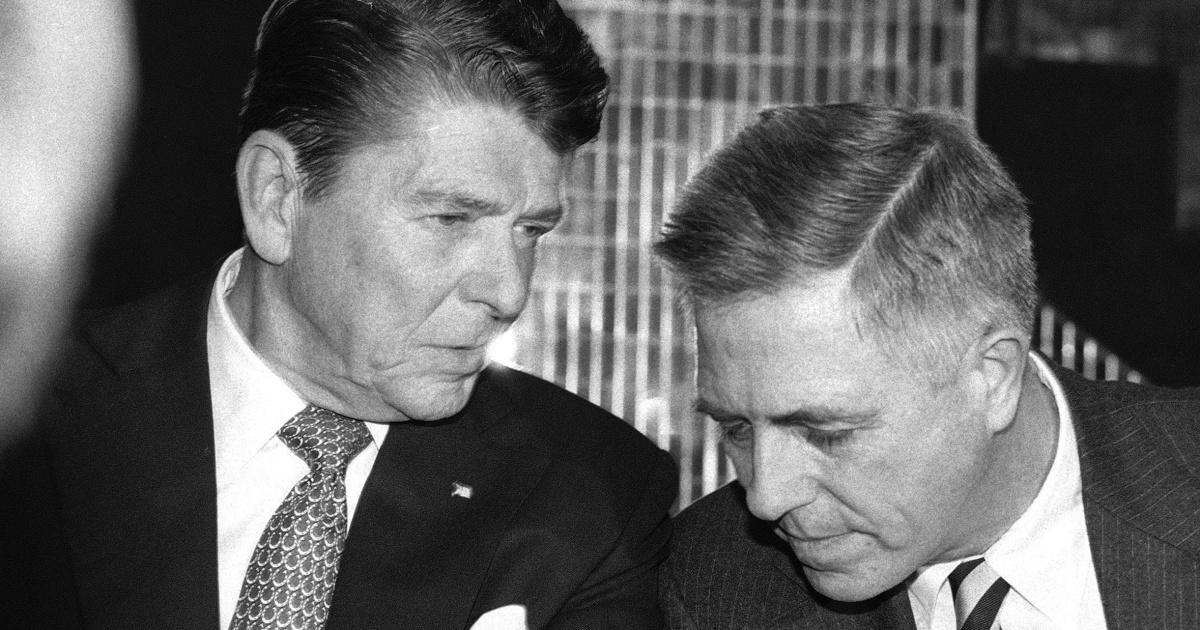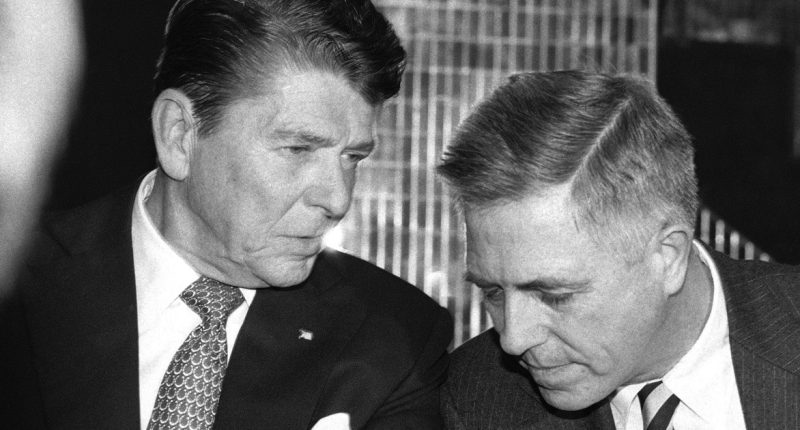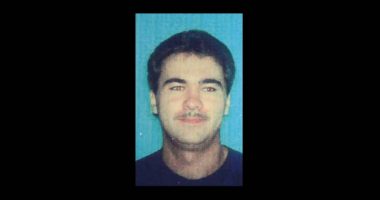
His younger brother called his win “the crystallization of counterrevolutionary impulses” and often referred to James as “the sainted junior senator from New York.”
Buckley, identifying himself as both a Republican and Conservative, represented New York in the Senate for one term, losing in 1976 to Democrat Daniel Patrick Moynihan.
A conservative who supported free enterprise, fought big government and even opposed Republican Party members he thought were too liberal, Buckley may best be remembered as the plaintiff in a key court decision on campaign finance.
In 1976, two years after major changes were made to U.S. campaign finance law, the Supreme Court in Buckley v. Valeo threw out mandatory limits on candidate spending as a violation of the First Amendment. The court, however, ruled that Congress could set limits on contributions.
In March 1974, Buckley shocked New York Republicans when he called on Nixon to resign to pull the nation “out of the Watergate swamp” and save the office of the presidency.
He said he acted out of “a duty to my country, to my constituents and to my beliefs. … I do so with sorrow because I am a lifelong Republican who has worked actively for Richard Nixon.”
Buckley was just the second Republican senator to ask Nixon to step down, after Edward W. Brooke of Massachusetts. Nixon finally quit five months later.
“He really wasn’t a politician; that’s probably one of the reasons he didn’t get reelected,” state Conservative Party Chairman Michael Long said of Buckley in 2006. “He really was a statesman of the highest order. He believed very strongly in a set of values, the Constitution and America. He was an outstanding gentleman.”
Buckley had gained his first wide notice in the political world in 1968 when he attracted more than a million votes as the Conservative Party challenger to liberal Republican Sen. Jacob Javits. At the time it was the best showing for a minor party candidate in state history. Javits won, with help from the state’s Liberal Party.
Moving to Connecticut after his 1976 loss, Buckley lost a bid for a Senate seat there in 1980 when he was defeated by Democrat Christopher Dodd. The seat was open because of the retirement of Sen. Abraham Ribicoff, another Democrat.
After the Connecticut race, Buckley was appointed by then-President Ronald Reagan as an undersecretary of state from 1981 to 1982.
He went on to serve as president of Radio Free Europe/Radio Liberty from 1982 until 1985, when was appointed as a federal appeals court judge in Washington despite criticism from opponents who noted he had worked only a few years as a lawyer.
Among his decisions on the Washington appeals court was one in which he and then-colleague Clarence Thomas, now on the Supreme Court, set aside a $50 million punitive damages award against Korean Air Lines over the Soviet Union’s 1983 shooting down of a KAL jetliner.
He stepped down from the bench in 1996 and was ultimately succeeded by John Roberts, now chief justice of the United States.
Buckley was born on March 9, 1923 in New York City. He attended Yale University, graduating in 1943, then enlisted in the Navy. After World War II ended, he went back to Yale and earned a law degree. After a few years practicing law, he entered the Buckley family business.
Buckley is survived by six children, eight grandchildren and two great-grandchildren. His wife, Ann, died in 2011.
Source: | This article originally belongs to Nbcnews.com









